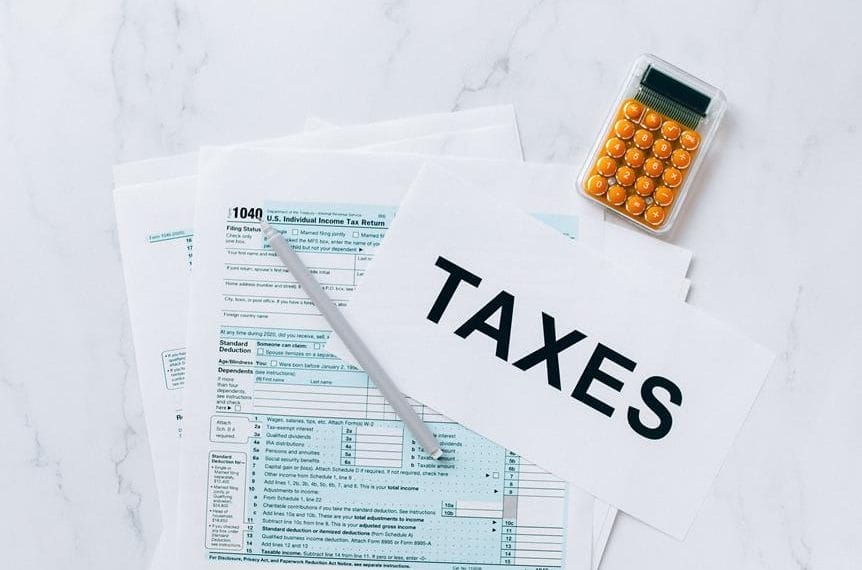Imagine standing at the edge of a winding road, uncertainty looming. The weight of financial burdens presses down on your shoulders, and you find yourself contemplating the possibility of filing for bankruptcy. But where do you begin? How do you navigate the intricate process of filing for bankruptcy in New Jersey?
This discussion will guide you through the essential steps, from finding an experienced bankruptcy lawyer to filing the necessary documents, offering valuable insights and advice.
So, take a deep breath, for a path towards financial relief awaits.
Key Takeaways
- Seek out an experienced bankruptcy lawyer in New Jersey who specializes in New Jersey bankruptcy law.
- Collect all necessary financial documents, including tax returns, pay stubs, bank statements, and valuations/appraisals for real estate.
- Complete a credit counseling course from an approved agency within 180 days before filing for bankruptcy and file the Certificate of Completion with the Bankruptcy Court.
- Consult an experienced bankruptcy attorney to accurately and honestly complete the bankruptcy petition form, file it with the United States Bankruptcy Court for the District of New Jersey, and pay the required filing fee.
Finding an Experienced Bankruptcy Lawyer
To ensure you receive accurate and reliable guidance throughout the bankruptcy process, finding an experienced bankruptcy lawyer in New Jersey is crucial. Filing for bankruptcy can be a complex and overwhelming process, but with the right attorney, you can navigate it confidently.
New Jersey has several well-qualified bankruptcy attorneys helping individuals and businesses file for bankruptcy.
When searching for a bankruptcy lawyer, it’s important to consider their experience and expertise in New Jersey bankruptcy law. You want someone knowledgeable about the specific laws and regulations that apply to your case. A qualified attorney will carefully evaluate your financial situation and guide you through the process, from preparing the necessary paperwork to representing you in court.
While you may be tempted to rely on online research for guidance, it’s important to consult a professional for accurate information. Online resources can often be misleading and may not provide the guidance you need. By working with a New Jersey bankruptcy lawyer, you can be confident that you receive reliable advice tailored to your situation.
Collecting Financial Documents
Gathering the necessary financial documents is an essential step in bankruptcy, providing a comprehensive snapshot of your financial situation. When filing bankruptcy in New Jersey, whether Chapter 7 bankruptcy or Chapter 13 bankruptcy, having all the required documentation ready is crucial. Your creditors and the bankruptcy court must evaluate your financial status to determine the appropriate debt relief options.
First, you should gather your state and federal tax returns for the past two years. These documents will be used for evaluation and petition preparation. You’ll also need to compile income proof for the last six months. This includes pay stubs and any self-employment income. Providing accurate and up-to-date income information is essential to ensure the bankruptcy process proceeds smoothly.
Furthermore, collect recent bank account statements and any valuations or appraisals for owned real estate. These documents will help provide a complete financial picture, allowing creditors and the court to assess your financial situation accurately. Prepare a comprehensive list of all your assets and provide budget information to support the bankruptcy process.
Completing Credit Counseling Course
When completing the credit counseling course in New Jersey, you must ensure that you have obtained a Certificate of Completion from an approved agency before filing for bankruptcy. This course is mandatory for both Chapter 7 and Chapter 13 bankruptcy filings. The Department of Justice approves credit counseling agencies, and you can complete the course online or over the phone.
Here is what you need to know about completing the credit counseling course:
- Timing: Complete the course within 180 days before filing for bankruptcy. This timeframe is crucial to ensure that your Certificate of Completion is valid and accepted by the Bankruptcy Court.
- Approved Agency: Choose a credit counseling agency approved by the Department of Justice. These agencies have the necessary expertise to provide you with the required education and guidance.
- Certificate of Completion: Once you have completed the credit counseling course, you’ll receive a Certificate of Completion. This certificate serves as proof that you have fulfilled the requirement. You’ll need to file this certificate with the Bankruptcy Court along with your bankruptcy petition.
Preparing Bankruptcy Petition
Now that you have obtained your Certificate of Completion from the credit counseling course, it’s time to prepare your bankruptcy petition. Filing bankruptcy in New Jersey can help you navigate your financial difficulties and give you a fresh start.
To begin, consult an experienced New Jersey bankruptcy attorney who can evaluate your situation and guide you. They’ll help you gather the necessary financial documents, such as tax returns, pay stubs, and bank statements, to complete the bankruptcy petition accurately.
The bankruptcy petition is a crucial document that outlines your financial information, including your income, expenses, assets, and debts. It’s important to complete this form accurately and honestly, as any discrepancies could result in delays or even the dismissal of your case.
Once the petition is complete, you’ll file it with the United States Bankruptcy Court for the District of New Jersey. Along with the petition, you’ll also need to pay the required filing fee, which is necessary to process your case.
After filing the bankruptcy petition, you’ll attend debtor’s meetings and meet with the bankruptcy trustee to discuss your case further. These meetings allow the trustee to ask you questions about your financial situation.
Filing Bankruptcy Petition
To ensure a smooth filing process, it’s essential to consult with an experienced New Jersey bankruptcy attorney who can provide guidance and support throughout the preparation and submission of your bankruptcy petition.
Filing for bankruptcy in New Jersey involves several essential steps, including:
- Gather necessary documents: Before filing your bankruptcy petition, you’ll need to gather important financial documents such as tax returns, paystubs, and bank statements. These documents will be crucial in evaluating your financial situation and determining whether you should file for Chapter 7 or Chapter 13 bankruptcy.
- Complete a credit counseling course: As part of the bankruptcy process, you’ll need to complete a credit counseling course from an approved agency within 180 days before filing for bankruptcy. This course will help you understand your financial situation and explore non-bankruptcy alternatives. Once completed, you’ll obtain a Certificate of Completion, which must be filed with your bankruptcy petition.
- File the bankruptcy petition and pay court fees: After gathering the necessary documents and completing the credit counseling course, you’ll need to prepare and file your bankruptcy petition with the United States Bankruptcy Court for the District of New Jersey. Along with your petition, you’ll be required to pay court fees, which vary depending on the bankruptcy case you’re filing.
During the bankruptcy process, you may also be required to attend debtor’s meetings, where you’ll have the opportunity to discuss your financial situation with creditors and the bankruptcy trustee.
Conclusion
In conclusion, filing for bankruptcy in New Jersey can be a complex process. However, with the help of an experienced bankruptcy lawyer, you can navigate through it successfully.
Collecting the necessary financial documents is an essential step in the bankruptcy process. These documents include bank statements, tax returns, pay stubs, and other relevant financial records.
Completing the required credit counseling course is also necessary before filing for bankruptcy. This course aims to provide you with the necessary knowledge and tools to manage your finances more effectively in the future.
Accurately preparing and filing the bankruptcy petition is crucial. This document outlines your financial situation, including your assets, debts, and income. It is essential to provide accurate and complete information to avoid complications during bankruptcy.
Remember, seeking professional guidance is essential throughout the entire bankruptcy process. An experienced bankruptcy lawyer can provide the necessary expertise and support to ensure a smooth and efficient operation.












